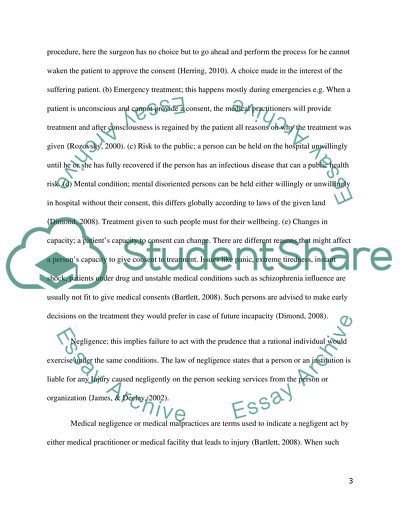Discuss the law of consent to treatment and the law of negligence Assignment. Retrieved from https://studentshare.org/law/1475301-discuss-the-law-of-consent-to-treatment-and-the
Discuss the Law of Consent to Treatment and the Law of Negligence Assignment. https://studentshare.org/law/1475301-discuss-the-law-of-consent-to-treatment-and-the.


